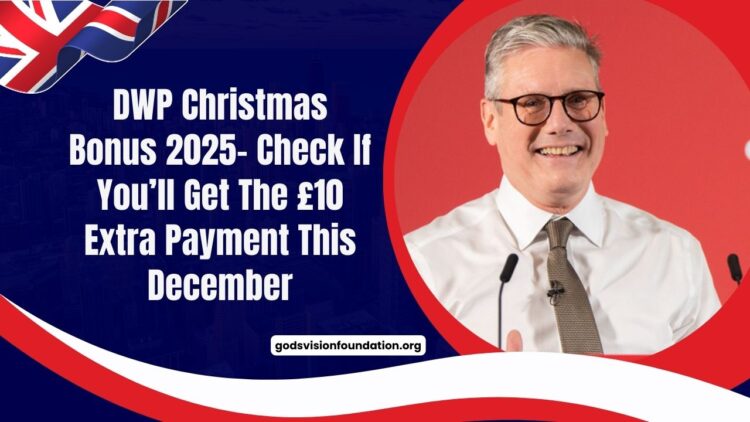As the holiday season approaches, millions of people across the UK will see an extra payment from the Department for Work and Pensions (DWP).
This isn’t a new benefit or an increase in your pension—it’s the well-known Christmas Bonus, a small one-off payment of £10. While the amount may seem small, it has been a tradition for over 50 years and still matters to many households.
But not everyone knows they are eligible, especially those newly retired or receiving disability benefits. In this article, we’ll break down who qualifies, how it is paid, and what to expect in 2025.
What is the DWP Christmas Bonus?
The Christmas Bonus is a one-off, tax-free payment of £10 given to people who receive certain State benefits.
- It was first introduced in 1972 by Prime Minister Ted Heath’s government.
- The payment has never increased and has stayed at £10 for more than 50 years.
- If adjusted for inflation, £10 in 1972 would be worth around £118 today.
Even though it’s a small amount, it continues to be paid every year before Christmas.
Who Can Get the Bonus in 2025?
Nearly 24 million people in the UK claim at least one benefit from the DWP. This includes:
- 13 million pensioners receiving the State Pension.
- 5.7 million people on Universal Credit.
- 3.7 million claimants of Personal Independence Payment (PIP).
However, the Christmas Bonus does not go to everyone. Universal Credit claimants are excluded.
Qualifying Benefits
You will get the £10 bonus if you receive at least one of the following during the first full week of December 2025:
| Qualifying Benefits for DWP Christmas Bonus 2025 |
|---|
| State Pension |
| Personal Independence Payment (PIP) |
| Attendance Allowance |
| Carer’s Allowance |
| Disability Living Allowance |
| Pension Age Disability Payment |
| Adult Disability Payment |
| Child Disability Payment |
| War Widow’s Pension |
| Severe Disablement Allowance |
| Widow’s Benefit |
| Industrial Death Benefit |
(There are 23 benefits in total, but these are the main ones most people receive.)
Residency Rules for Eligibility
To qualify for the Christmas Bonus 2025, you must be living in the UK, Channel Islands, Isle of Man, or Gibraltar during the qualifying week in December (likely December 1–7, 2025).
If you live abroad, you may still qualify, but stricter conditions apply.
Payment Process – How and When You’ll Get It
- The £10 bonus will be paid automatically into the same account where you normally receive your pension or benefit payments.
- It will appear separately from your regular payment.
- On your bank statement, it will usually show as “DWP XB”.
Important: You do not need to apply. If you qualify, you’ll get it automatically.
What About Couples?
If you are married, in a civil partnership, or living together, both partners can get the bonus if each qualifies for a benefit.
Even if your partner doesn’t qualify directly, they may still receive the bonus under certain conditions, such as being dependent on your benefit claim.
Why the Bonus Still Matters
Though £10 may not stretch far in 2025, the Christmas Bonus remains a symbolic gesture. It reassures pensioners, carers, and disabled people that extra support is available during a costly season.
With high bills for energy, food, and housing, every bit of help counts—especially for low-income households.
The DWP Christmas Bonus 2025 may only be £10, but it is still an important tradition that helps millions of pensioners and benefit claimants.
If you are receiving one of the qualifying benefits and meet the residency rules, you will get this extra one-off payment before Christmas, with no need to apply. Keep an eye on your bank account for “DWP XB” this December.
FAQs
Do I need to apply for the DWP Christmas Bonus?
No. The payment is made automatically into the same account as your usual pension or benefit.
Will Universal Credit claimants get the Christmas Bonus?
No. Universal Credit alone does not qualify for the bonus, but if you get another qualifying benefit, you may still receive it.
When will I see the payment in my account?
The payment is usually made in the first or second week of December. It may not come on the same day as your usual benefit.

